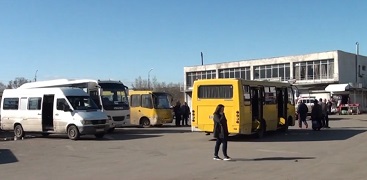Lado Bitchashvili, Shida Kartli
On March 21, for the prevention of the spread of the COVID-19, President Salome Zurabishvili released a Decree based on which the state of emergency was announced in the entire territory of the country. Before making the decision, the head of the government – Prime Minister Giorgi Gakharia stated that he did not see the need to announce the emergency situation in the country.
“The emergency situation will not equip the government with the instruments which we cannot use at this stage. Currently, we have all necessary instruments to step-by-step respond to the challenge and will continue in this way. One day, we may need to announce the state of emergency and we will do it. We clearly state today that with the current situation there is no need to announce the state of emergency. But tomorrow, if we will need it, we will make the decision,” PM Giorgi Gakharia stated.
By March 24, 67 citizens had confirmed COVID-19 in Georgia. The number of infected people is insignificantly raising every day; however, the number of people in self-isolation and quarantine is significantly increasing. By now, there were no cases of deceased patients in Georgia.
Initially, the Government of Georgia suspended schooling process in public schools and universities; temporarily closed kindergartens. On the second stage, the Government had to make economically grave decision – all trading centers were closed in the country. Only pharmacies, food-shops, petrol stations, bank offices and post offices continue operation.
As a result of the closed commercial companies and suspended economic activities, the national currency reached its maximum of devaluation. On March 24, the 1 USD cost 3.65 GEL and 1 EURO – 3.89 GEL.
Economist Tamar Edisherashvili said the GEL will further devaluate because thousands companies suspended operation in the country. She added that the stopped small and medium business is the particular problem.
“We must produce and sell product; when the economic activities are suspended in the country, the national currency is in isolation and it is the reason of its record devaluation,” Tamar Edisherashvili said.
As economists predict, if the regulations for the business continue for a long time, the country will face economic crisis and it will be very difficult to overcome the crisis.
At a later stage, the regulations were applied for the transport companies too. For the prevention of the spread of the COVID-19, movement of public transport was initially restricted but finally was fully prohibited.
“Because of short distance in mini-buses, it is more difficult to keep distance between passengers and the risks are higher to spread the virus. Therefore we made decision to stop operation of mini-buses. If we face the risk of wider spread of the virus, we will stop other transport means too,” PM Giorgi Gakharia stated.
In Tbilisi, buses replaced mini-buses. Temporary prohibition of the movement of mini-buses created particular problems in the regions because most municipalities do not have municipal transport and local population travels by mini-buses of private transport companies. The Government of Georgia introduced the regulations on March 17. The PM ordered the regional governors to control execution of the regulations in their respective regions.
The Shida Kartli regional governor faced serious problem when he returned to the region from the meeting in the Government’s administration. If he had prohibited movement of the mini-buses, the local population would have been left without transportation and he could not offer them any alternative because mostly mini-buses run in municipal centers and villages; it was impossible to replace them with buses.
On March 18, the regional governor Giorgi Khojevanishvili met media representatives and stated that instead full prohibition of the movement of mini-buses inside Gori and in the directions of the municipality villages, the transportation will be only reduced.
“Whole world and our country there too face serious challenge. In order to prevent the spread of the virus, the State takes measures and restriction of the public transport is one of those measures. The public transport will not stop now, but one day we may need to fully stop it; however, nowadays the transport movement is only reduced,” Khojevanishvili said.
Regardless this statement of the regional governor, public transport worked with some restrictions only one day. On March 19, the head of the transport company, which operates in the municipality, stated that the public transport would fully stop operation from March 20.
“We stop working until the Ministry of Healthcare tells us that there is no threat to continue working. We stopped transportation in all directions except Tbilisi,” said Zurab Tchetchelashvili, head of the transport company.
From March 23, the movement of the public transport was fully stopped in the entire country, including the movement from the regions to Tbilisi.
Full prohibition of the public transport movement created problems for the population, particularly those who do not have cars but still need to go to work.
“This situation may last one month and even longer. What shall those people do, who still work and cannot shift to remote regime,” the citizens complained about the stopped public transport in Gori.
News
December 13, 2023
Ethnic minorities outside the peace dialogue
November 6, 2023
‘Peace’ agenda of political parties
Popular
Articles
February 13, 2024




